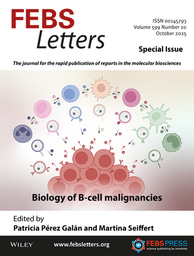The potential role of an Ombuds Office in addressing academic bullying concerns

Self-reported issues of academic bullying are frequently raised at institutions of higher education. Academic bullying is defined as repeated acts of discrimination, incivility or various types of harassment and threats that can affect students, postdoctoral fellows and faculty at all levels of experience.
Ombuds Offices are one of the first resources in addressing the issue of academic bullying. Here, Dr. Morteza Mahmoudi, Assistant Professor at the Department of Radiology and Precision Health Program at Michigan State University and co-founder of the Academic Parity Movement, discusses the role of Ombuds Offices in addressing the issue of academic bullying including the following main questions: (a) what distinguishes an Ombuds Office from other campus resources? And, (b) what are the offerings and limits of their role and services in helping community members address concerns of academic bullying?
An Ombuds Office provides visitors with a highly confidential, independent and informal forum in which to help visitors clarify their concerns, identify their goals and consider all of their options in managing or resolving their concerns. The role of an Ombuds is as an impartial conflict resolution practitioner, helping individuals make their own best decisions about next steps—if any—to take. Ombuds also serve as advocates of fair processes and productive communication and may bring systemic issues forward to institutional leadership for their consideration.
 What can a visitor expect when visiting their local Ombuds?
What can a visitor expect when visiting their local Ombuds?
What are the options when working with groups?
What are the limits to an Ombuds role and services?
Find answers to these questions and other useful suggestions regarding Ombuds in this Scientists' Forum article published in FEBS Letters.
Mahmoudi, M. (2022), The potential role of an Ombuds Office in addressing academic bullying concerns. FEBS Lett. https://doi.org/10.1002/1873-3468.14481
This article is part of a series on bullying in academia published in FEBS Letters. You may also be interested in this related article:
Täuber, S., Oliveri, N.F., Kostakopoulou, D. and Mahmoudi, M. (2022), Breaking the silence around academic harassment. FEBS Lett. https://doi.org/10.1002/1873-3468.14473



Join the FEBS Network today
Joining the FEBS Network’s molecular life sciences community enables you to access special content on the site, present your profile, 'follow' contributors, 'comment' on and 'like' content, post your own content, and set up a tailored email digest for updates.